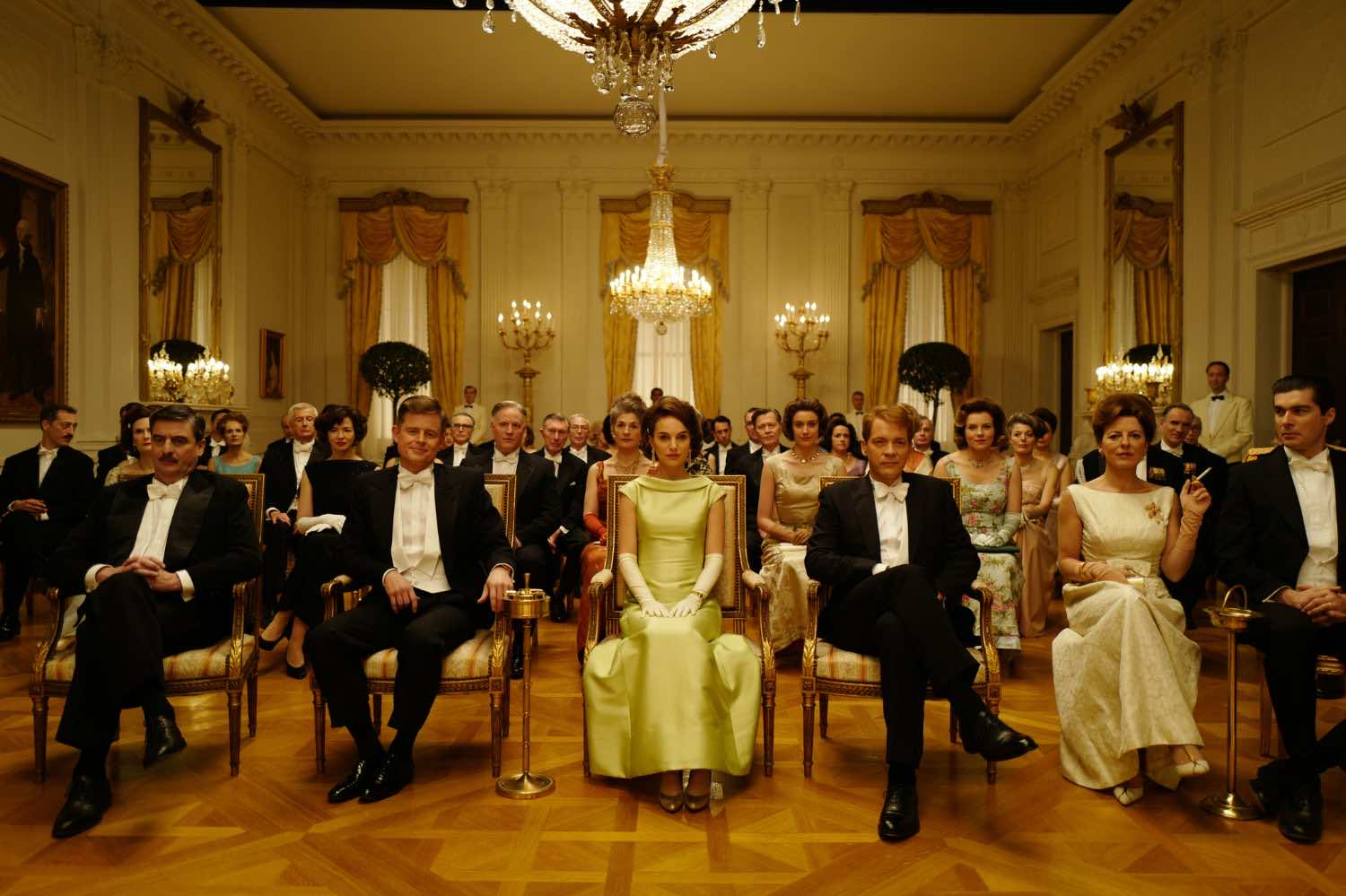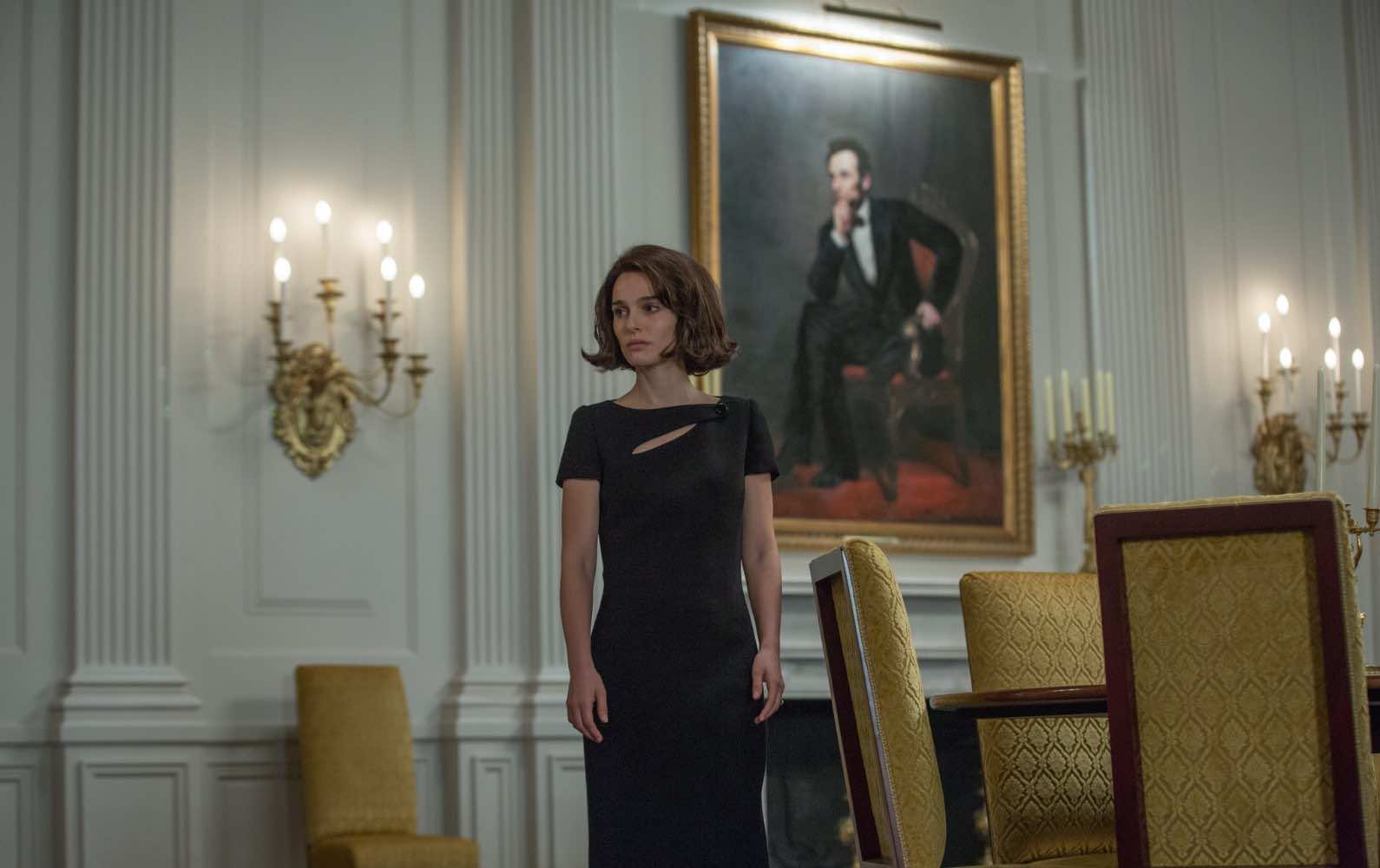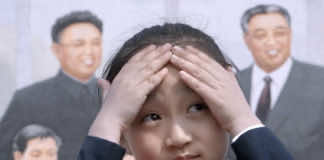
I never knew Chilean director Pablo Larraín had a film like Jackie in him. Not because it’s his first film in English but because it is his most meticulously crafted, clearest and beautiful looking film yet. At the center of it is actress Natalie Portman, laying it all out as Jackie Kennedy. It’s November 1963, and she is being interviewed by an unnamed journalist (Billy Crudup) at her home in Hyannis Port, Massachusetts. It’s her first big interview since the death of her husband, president John F. Kennedy (Caspar Phillipson).
When I note that Portman is at the center of this film. She is literally at the center. Larraín uses so many shot/reverse shots between Jackie and the journalist, early on, you will wonder if they were ever in the same room. It’s a move that isolates her. Even in other scenes, told in flashback cued by the interview, she is at the center of the frame. With such mise-en-scène, people either sitting or standing around her become separate of her.

Jackie is a woman now alone, after all, and Portman delivers a performance demanding of such focus. From moments of breakdown to moments of graceful resiliency, she delivers a stirring performance of isolation. Portman overshadows everyone. Greta Gerwig as Nancy Tuckerman, Jackie’s old friend and social secretary, is cute, but you are very aware of the actress. It takes someone like Portman to disappear into the role, and although memories of the real Jackie are tough to compete with, Portman can embody her state with such power, you come to understand her as a woman struggling with a heavy loss, not just on a personal level but her awareness of what it means in history, the key to the film’s tension throughout.
To transmit this isolating quality further, you have the alien score by Mica Levi, who last gave us that amazing soundtrack to Under the Skin (‘Under the Skin’ proves sci-fi is a genre best served obtusely). It’s unlike any orchestral score you will hear in a film. There’s a dissonant, atonal, eerie quality at times, but it’s also so haunting that its melodies carry over on a subconscious level into scenes without it. Larraín allows the score’s undulating, vibrant quality to take over some scenes. When she and JFK are greeted at the airport in Dallas, that fateful day, the music swells and soon drowns out pleasant greetings. It has such ominous portent.

Beyond the history lesson/reenactment, this is a film about the mark death leaves on the surviving partner. Forgetting who these people were as historical icons, who can imagine a death more significant than the sudden, violent trauma of what Jackie saw before her very eyes. Larraín never holds back. From her break down on the plane right after the shooting to her vivid description of the assassination to the journalist, the viewer is forced to consider this. She talks about collecting fragments of her husband’s skull to try to piece him back together. On top of that, Larraín also presents the actual assassination and its visceral aftermath in gruesome detail. Her weeping, tears melding with her husband’s blood, is presented in extreme closeup. It’s stark and an acute style of filmmaking that some will think jumps the shark. Maybe it does, but it calls attention to itself so extremely, it can be forgiven. If you’re going to get into this detail, go all the way, and Larraín does.
Beyond the film’s stark visual quality, there’s something more subtle and profound transmitted. Larraín’s precise mise-en-scène not only eerily recreates images we all know of the couple’s children left fatherless but also the sense of that vacuum. Little John John’s flippant behavior at the funeral captures not only childish innocence but accents a boy who was denied an opportunity to really know his father was before he was taken away. Jackie, meanwhile, shows concern with how the funeral will go, where her husband’s corpse will rest and how the public perceives her. But it’s not about ego, it’s about having her reality done justice. Her concern is for something much more private than legacy. Her efforts come from a desire to keep her husband alive in some way. That this is ultimately impossible is what makes this movie so heartbreaking.










Thanks for the marvelous review! I really enjoyed reading it, you are a great writer. I will make sure to bookmark your blog and will eventually come back at some point.
I want to encourage you to continue your great writing, have a nice evening!
Write more, that’s all I have to say! You definitely know what you’re talking about.
I like your writing style, really enjoying this internet site.